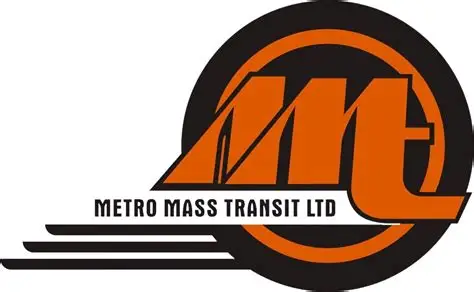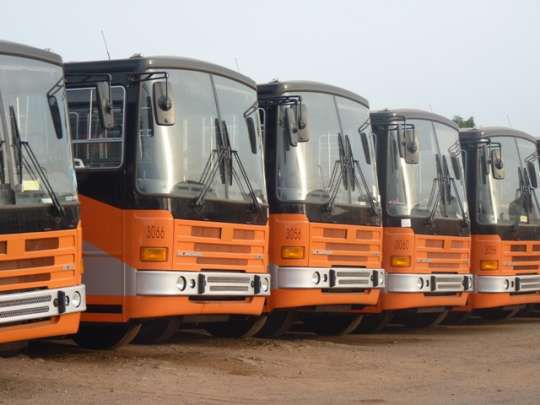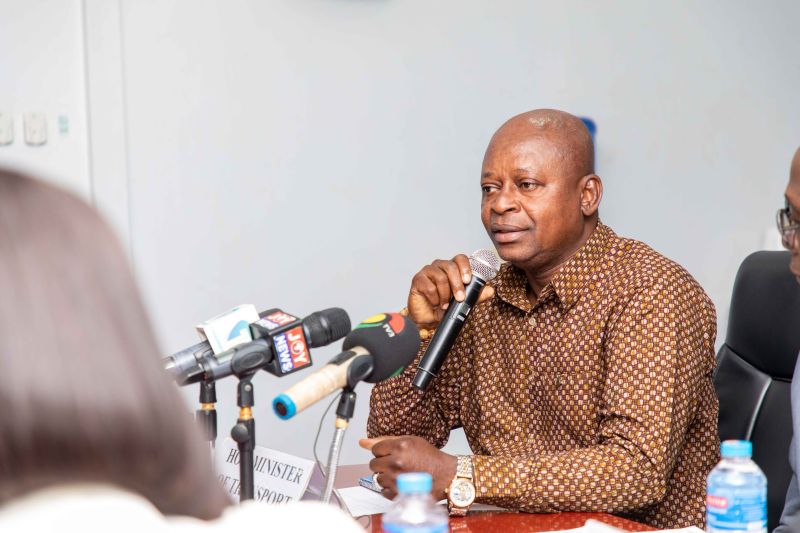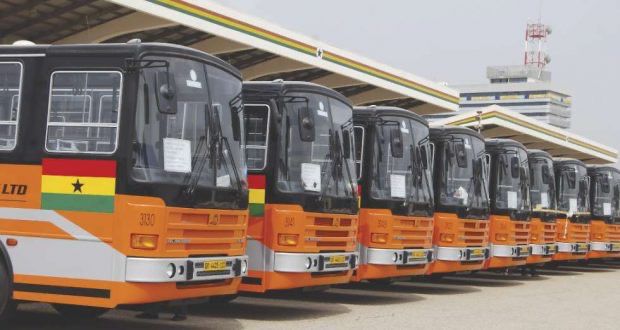The Government of Ghana has announced plans to procure 500 new buses for the state-owned Metro Mass Transit Limited (MMTL) as part of a broader initiative to improve public transportation nationwide. The announcement was made in Parliament on Thursday, October 30, 2025, by the Minister for Transport, Joseph Bukari Nikpe.
Under the first phase of the rollout, 150 buses are expected to arrive in early 2026, with the remaining units to be delivered over the short to medium term. The move aims to revitalise MMTL, which currently operates a modest fleet of 134 functional buses, making it difficult to expand routes and meet increasing passenger demand.
Improving public transport remains vital for Ghana’s economic and social growth. A stronger MMTL fleet can reduce urban congestion, lower transportation costs, and offer commuters safer and more reliable options. Efficient public transport directly influences productivity by cutting travel time and improving access to workplaces, schools, and markets.
Across Africa, many public transport systems face similar challenges—ageing fleets, inadequate investment, and shrinking coverage. Ghana’s investment could serve as an example of how strategic public-sector reforms can transform mobility and boost economic inclusion.

Metro Mass Transit Limited was established to provide affordable, reliable bus services for both intra-city and inter-city travel. However, the company’s operational capacity has declined sharply over the past decade. From a once robust fleet of more than 2,000 buses, MMTL now runs fewer than 150, limiting its ability to meet demand in growing cities like Accra, Kumasi, and Takoradi.
Transport experts have long argued that rebuilding the MMTL fleet is crucial for reducing dependency on private minibuses and taxis, which dominate Ghana’s transport landscape but often operate without regulation and at inconsistent fare levels.
Details of the New Buses Initiative
In his address to Parliament, Minister Nikpe explained that the government’s procurement of 500 new buses forms part of a broader plan to modernise Ghana’s transport infrastructure.
“The company is in the process of acquiring new buses — about 500 of them over the short to long term — to enhance operations and expand routes,” he said.
According to him, the new vehicles will be deployed to optimise existing routes and introduce new ones in underserved areas. MMTL also plans to improve terminal facilities, upgrade maintenance depots, and adopt digital ticketing systems to enhance customer experience and operational efficiency.
As part of Ghana’s drive toward a 24-hour economy, MMTL will operationalise continuous services within its vehicle maintenance and traffic departments to ensure buses remain in good condition and available throughout the day.

In regions such as Cape Coast and Tamale, commuters often wait long hours for limited bus services, while some intercity routes have been suspended due to insufficient vehicles. The arrival of new buses could restore routes that have been inactive for years and create employment for drivers, conductors, and maintenance staff.
The additional capacity will also support school transport programmes and public-sector commuting schemes, particularly in rural districts where affordable travel options are scarce.
1. Broader Coverage: Many parts of Ghana remain underserved by public transport, leaving citizens dependent on informal options that can be unsafe or costly.
2. Improved Reliability: With more buses available, maintenance schedules can be managed better, and breakdowns will no longer disrupt entire routes.
3. Affordability: MMTL’s fares are typically lower than those of private operators. Expanding the fleet will help sustain accessible transport for low-income earners.
4. Job Creation: The expansion will create employment opportunities in bus operations, depot management, vehicle servicing, and related supply chains.
Despite the optimism surrounding the announcement, several hurdles remain. Procurement delays, funding shortfalls, and maintenance challenges have hindered similar projects in the past. Ensuring transparency in the acquisition process, maintaining the new fleet, and training staff in modern transport management practices will be essential to long-term success.
Experts also caution that improved service quality depends not only on new buses but also on well-maintained terminals, route planning, and enforcement of safety standards.

If implemented successfully, the 500-bus project could signal a turning point for Ghana’s public transport system. It could reduce dependence on private vehicles, ease congestion in urban centres, and make mobility more inclusive for low-income communities. It also aligns with Ghana’s economic transformation agenda, which seeks to boost infrastructure and improve public-sector efficiency.
For Ghana—and by extension, Africa—the initiative underscores the importance of sustained investment in mass transit as a foundation for economic resilience and social inclusion.
The government’s decision to support Metro Mass Transit with 500 new buses is a significant step toward restoring confidence in public transportation. Success will depend on consistent maintenance, effective route management, and continued policy support. Reliable, affordable, and safe public transport remains central to Ghana’s journey toward sustainable urban and economic development.

